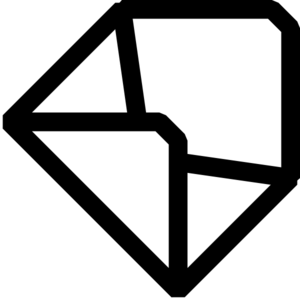| Alexandra S. "As a freelance graphic designer I feel like I wear many hats on top of just designing things such as websites, print material, ads, etcs. Because I work for myself, I also spend my days interacting with clients (sales and project management) as well as invoicing (the financial side). But the most fun is when I have that all out of the way and I can put on some good music, open a design program like Photoshop, and start moving images, text and color blocks around to start building out a design." |
Education
Required License(s)
None are needed, but anything extra you can show clients or a potential boss is always helpful. There are endless awards and certificates you can get to help boost your credibility. |
Required Degree(s)
None for freelance, but a BA or BFA for an entry-level position is required. |
Importance of GPA
|
Alexandra's Highest Degree: Bachelor's degree (Bachelor of Fine Arts and Bachelor of Science)
Alexandra's College Major: BFA in Graphic Design/Photography and a BS in Communications
Alexandra's College GPA Range: 3.6-3.9
Salary
For freelancing, the sky is the limit (and same goes for the low end). It really varies.
A word of advice for freelancers though: don't sell yourself short. If you have the talent, take what you want to make per hour and multiply that by at least 1.5—then charge that.
For a company, an entry level designer should be making around $35,000 - $40,000.
A word of advice for freelancers though: don't sell yourself short. If you have the talent, take what you want to make per hour and multiply that by at least 1.5—then charge that.
For a company, an entry level designer should be making around $35,000 - $40,000.
Getting the Job
How did you get your job?
I worked for two different agencies for a total of four years while freelancing on the side. One day, I decided enough was enough with the desk job and rigid hours, and took the leap to full time freelancing. I had a couple small clients but nothing even close to enough to be able to pay my bills. But with a few months savings, the risk was more than worth it. I'm still not at the same income as I was at my last full-time job, but becoming my own boss was one of the best decisions I've ever made and the salary cut is more than worth it.
|
How important was networking to landing your position?
Networking was extremely important to land my agency positions—I was offered both jobs based on people I knew recommending me. Once someone a company trusts says you're the best for the job, the interview process is so simple. For freelancing, I network all the time when I'm looking for new clients. To be a freelance designer, you really need to feel comfortable talking to people.
|
Life on the Job
What is a typical day (or week) for you like?
Being my own boss, no two days are ever the same—which I love. Some days I focus on my blog (myurbanfamily.com), some days I focus on design work. Others are split between the two. There are days when I spend most of my time on Skype with clients and there are other days when I lose 6 hours in a design and realize I skipped lunch. Because every hour I put into my job directly translates to income, I also adjust my hours based on need or how busy I am that week. Some weeks are slow and I'll take a day off. Others I end up working 8-5 and then again 10-1 am.
|
Does being a woman affect any aspect of your career?
Yes. This may sound generic, but when you have clients, some tend to not feel your opinion weighs as much because you are a woman. Which always makes me laugh because design is such a visual concept and those types of clients are usually the ones who will also admit that their wife decorates their home because that is a feminine thing to do. Sometimes the correlation is lost.
|
What is the best thing about your job?
Making my own hours and being (mostly) in control of how much or little I make at a given time.
|
What is the worst thing about your job?
Ha, same as above. Not having a 401k, health insurance, and set vacation days can be a downside as well.
|
How demanding is your job?
Dealing with clients is the most demanding part mentally. And if you're working in an office environment, you generally don't have as much of a hands on experience there.
|
Do you have any advancement opportunities?
In the agency world, you generally move from entry-level designer, to senior-level, and then to creative director if you're looking for another step up. Many designers are happy to stop at the senior-level though. For freelancing, you really have full control of how and when you want to grow.
|
Advice for You
What are the skills, characteristics, or talents that are most important to be effective in your position?
Having an open mind, creative instinct, and knowing how to communicate with others is very important. Also, clients can't always tell you very clearly what they want until they see something visual. Being open to criticism and having dialog back and forth is important.
|
What advice would you give to someone thinking about pursuing a career like yours?
If you're going the freelance route, make sure you have some savings to fall back on in the start. It's an uphill climb, but so worth it.
|
If you could do it over again, would you still pursue the same career?
Yes!
|

Follow Up
Want to learn more?
|

|













